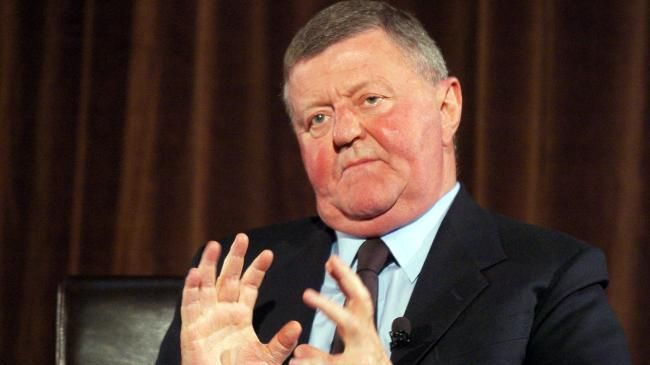Sam Chisholm.
A dominant figure in Australian and British television for decades, Sam Chisholm died in Sydney on Monday after a short illness. He was 78.
The combative, Kiwi-born executive worked as a floor wax salesman before being appointed MD of the Nine Network in 1975, aged 35.
For the next 14 years the network owned by Kerry Packer and later by Alan Bond ruled the ratings, revenues and profitability, attracting the best talent money could buy.
In that era he was regarded as a pugnacious go-getter, the ‘starmaker’ with a big chequebook and loud opinions, a Nine spokesperson recalled today. He was nicknamed a legend in his own lunchtime for his lavish lifestyle at work and play and the man who popularised the phrase “losers have meetings, winners have parties.”
In 1989 he took the helm of Rupert Murdoch’s Sky Television, leading the company through a merger with its competitor to form British Sky Broadcasting.
BSkyB became the world’s most successful satellite pay television operation, partly due to the coup of securing the rights to the Premier League football. He retired from BSkyB In 1997 but remained a director for a further two years.
After returning to Australia he had a double lung transplant at St Vincent’s Hospital thanks to the Federal Government’s transplant program and the country’s organ donation system.
From 2000-2007 he was a director of the Victor Chang Cardiac Research Institute and was appointed a Life Governor in December 2003.
In 2001 he joined the board of Foxtel as a Telstra representative, later serving as chairman and often clashing with Foxtel CEO Kim Williams.
In 2004 he was inducted into Australian television’s Hall of Fame and the following year received the International Honour for Excellence award from the International Broadcasting Commission. He returned to Nine briefly in 2005.
In 2007 he joined the board of the Chris O’Brien Lifehouse cancer treatment centre and was its chairman from 2009 to 2012.
He was appointed an Order of Australia in 2013 for service to medical research and health organisations as a corporate leader and through fundraising.
Survivors include his wife Sue and Caroline, his daughter from his first marriage. In a statement Nine said it “recognises the unique role he played with the network and for Australian television and sends condolences to the extended family and friends.”


